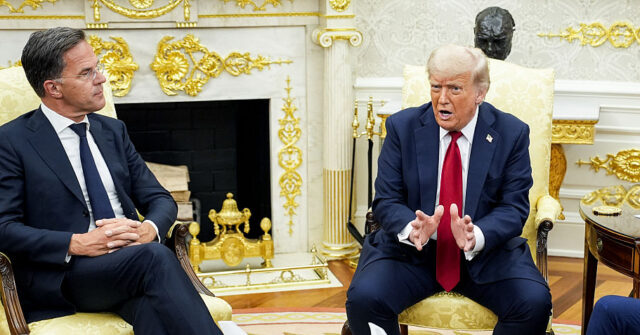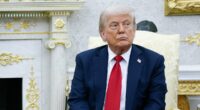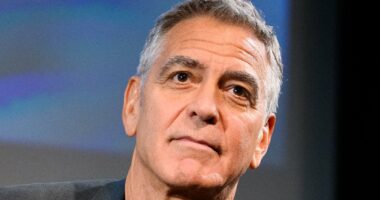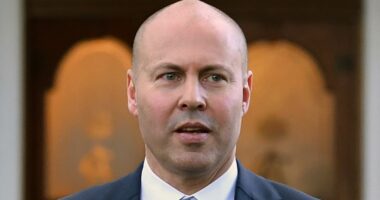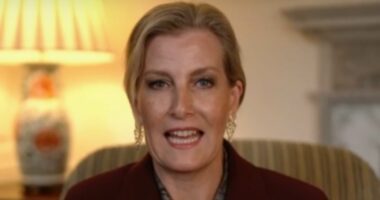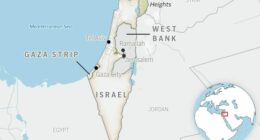Share this @internewscast.com
President Donald Trump told reporters during a meeting with NATO chief Mark Rutte on Monday that European NATO members would fund billions of dollars of American military equipment, including Patriot missiles, for Ukraine and threatened Russian President Vladimir Putin with a massive 100-per cent indirect tariff if he did not make peace in 50 days.
Trump explained that, if Putin did not end his invasion of Ukraine in 50 days, he will begin his proposed regime of “secondary tariffs” on the Russian economy. While Western states have imposed direct tariffs on Russia for years with mixed success, the concept of secondary tariffs is to place punitive levies on countries that buy Russian exports, encouraging them to disconnect from trading with Moscow.
China and India are the largest customers for Russian crude oil, for instance, and could face a new 100 per cent punishment tariff for doing business with Russia in 50 days, the beginning of September.
President Trump also announced a new deal with European NATO allies to enable a fresh rush of weapons to Ukraine to keep fighting Russia. Unlike under the last administration, the president said, these weapons would be made in America but wholly funded by Europe, effectively creating a massive inflow of foreign investment into U.S. companies and jobs.
Trump also spoke of how First Lady Melania Trump is something of a grounding force to him when he’s deeply involved in Ukraine war peace negotiation.
“I speak to [Putin a lot]… I always hang up and say ‘well that was a nice phone call’ and then missiles are launched into Kyiv,” Trump recalled, “I go home, I tell the first lady, ‘you know, I spoke to Vladimir today, we had a wonderful conversation’. And then she says ‘oh really? Another city was just hit.’”
The sanctions and weapons announcements were made alongside NATO Secretary General Mark Rutte, who described the deal as “really big.”
“Europe is stepping up,” he asserted. “Ukraine can get its hands on really massive numbers of military equipment both for air defence but also missiles, ammunition etc.”
“So if I was Vladimir Putin today and I hear what you are planning to do in 50 days, I would reconsider that I should take negotiations about Ukraine more seriously,” he added.
The exact terms of the weapons deal was not made explicit, but both men made clear the initial rush would be provided by European states shipping more of their own stores of weapons, missiles, and ammunition to Ukraine, and then backfilling their reserves with new production from the United States.
“We’ve made a deal today where we’re going to be sending them weapons and they’re going to be paying for them,” President Trump said. “They’ll be sent to NATO, NATO may choose to have some of them sent to other countries where we can get a little additional speed where the country can release something, it’ll be mostly in the form of a replacement”.
“Countries will move equipment fast into Ukraine, and then the U.S. later backfilling that because speed is of the essence,” Rutte elaborated, “taking consideration of what the U.S. needs itself, it isn’t like you can have a shopping list where you order have whatever you want because the U.S. has to make sure it keeps its hand on what it needs to keep the whole world safe, because you are the police agent of the whole world”.
In a specific case, President Trump said, one unspecified country that was on the verge of receiving 17 complete Patriot Missile air defence systems had agreed to delay taking that delivery, so some of those ready-to-go batteries could go to Ukraine. They would then wait for future production to have their delivery honoured.
Ukraine especially prizes Patriot missiles as they are effective at shooting down the Russian ballistic missiles that daily rain down on Ukrainian cities.
On the tariffs on Russia’s global customers and the Russian economy more generally, President Trump said he is “very unhappy” with Vladimir Putin for always being ready to talk peace but not act. On the punitive tariffs coming to deny Russia her global trade partners and allies, President Trump said: “we’re going to be doing very severe tariffs… doing secondary tariffs if we don’t have a deal in 50 days, it’s very simple, and they’ll be at 100 per cent, and that’s the way it is, couldn’t be more simple. I hope we don’t have to do it”.
One of the major areas of Russian exports that has managed to continue earning Kremlin significant quantities of foreign cash through the war is energy.
China and India dominate purchases of coal and oil, analyses state, and slapping a mega-100-per-cent tariff on those countries may be difficult enough. But in other areas, even strong allies of the U.S. and Ukraine continue to buy huge volumes of Russian energy, even as they sanction and criticise Moscow elsewhere.
Turkey – a NATO member – is a major importer of Russian coal and refined oil products. The European Union, despite everything, continues to import record levels of Russian Liquid Natural Gas (LNG) to keep the lights on across the continent.
President Trump recommended Russia stop fighting and instead focus on opening up trade to the West in an era of peace, stating: “from Putin’s standpoint, their economy is going very poorly, he’s got to get his economy back, save his country … he’s got a great country for trading, he could use the assets instead of war. He’s got some tremendous potential”.
